Share
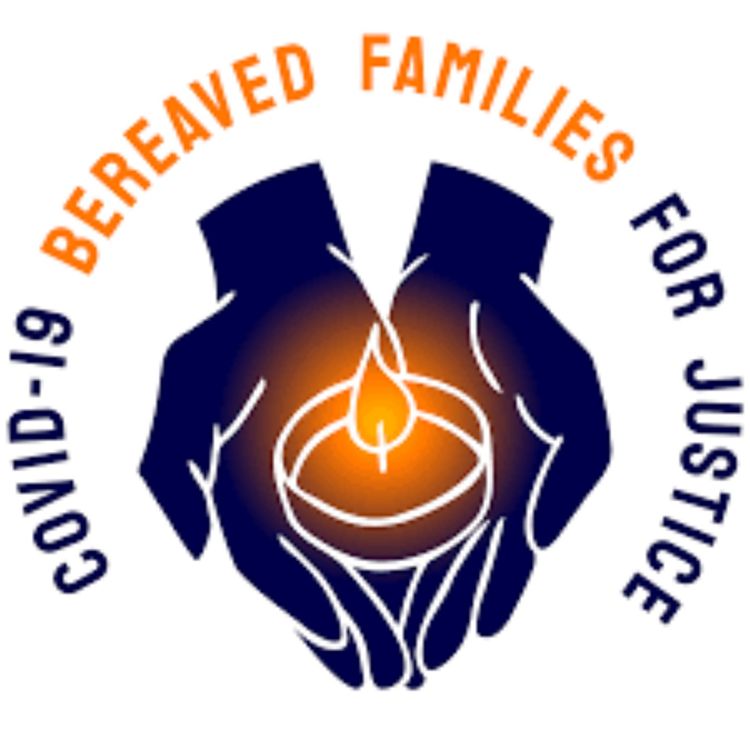
100 Campaigns that Changed the World
Covid-19 Bereaved Familes for Justice
Season 1, Ep. 16
•
Covid-19 Bereaved Families for Justice is a campaign that has called for accountability for the UK Government Response to Covid and for the lessons to be learned so that mistakes are avoided in future pandemics. In this episode Campaign Director Nathan Oswin tells us how the campaign has been successful, and what the challanges were.
You can join here: https://covidfamiliesforjustice.org/ and there is also a Facebook Group: https://www.facebook.com/groups/covidfamiliesforjusticeuk
Sign up or leave comments at https://www.100campaigns.com/
More episodes
View all episodes

4. Patriotic Millionaires
40:06||Season 3, Ep. 4Our guest is on this episode Rebecca Gowland, the executive director of Patriotic Millionaires UK, which is a network of British millionaires, from multiple industries and backgrounds, from across the UK, to use what they call the ‘voice of wealth’ to build a more just, stable, and inclusive economy, and their aim is the end of extreme wealth. They have a profound concern about the destabilising level of economic and political inequality. And they want to see more economic and political equality. In the U.S., the group was founded in 2010 by Erica Payne under the name "Patriotic Millionaires for Fiscal Strength". It was initially formed to advocate for the expiration of the Bush tax cuts during the Obama administration. This is episode is sponsored by 38 Degrees. Go to: www.38degrees.org.uk/100campaigns Sound is by Derek Gray. Music is by Alex Gordon.
3. 3 Hijabis
39:30||Season 3, Ep. 3The guest on this episode is Shaista Aziz, one of The Three Hijabis—a powerful anti-racism campaign that began with a viral tweet in 2021. What started as three British Muslim women watching England play in the Euros soon became a national movement, after racist abuse targeted Black players Marcus Rashford, Jadon Sancho, and Bukayo Saka. Their petition to ban racists from football for life gained over a million signatures in just 48 hours, forced government action, and sparked a global conversation about inclusion in the sport. With 12 million petition views and a lasting impact on football culture, their story is a testament to how activism can challenge hate and reclaim spaces for everyone. Amnesty crisis response campaigner, working on gaza. Sound is by Derek Gray. Joe Townsend was the producer.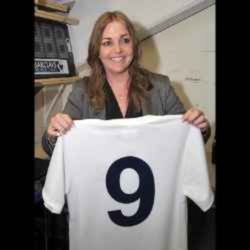
2. Making Football Safer
46:56||Season 3, Ep. 2The guest on this episode is Dawn Astle. Dawn is the daughter of Jeff Astle, who played football for West Bromwich Albion in the 60’s and 70’s. At the age of 55, Jeff was diagnosed with dementia, and he died four years later. The pathologist who officiated Jeff’s death said his brain looked like the brain of a boxer. Dawn has been campaigning since then for a change in the rules about heading in football. She has also helped win significant victories, notably with a ban coming into place in youth football this year and next year. But there is a lot more to do.Sound is by Derek Gray.
1. Duncan Green
28:30||Season 3, Ep. 1In this opening episode of Season 3 of 100 Campaigns that Changed the World, I speak with Duncan Green – one of the most respected thinkers and practitioners in global development and social change. Duncan is Senior Strategic Adviser at Oxfam GB, Professor in Practice at the London School of Economics, and author of the widely read blog From Poverty to Power. His influential book How Change Happens has shaped how campaigners and policy-makers think about power, systems, and transformation. Drawing on decades of experience in international advocacy, Duncan reflects on what it really takes to create lasting change – and what campaigners today can learn from the past.Sounds is by Derek Gray.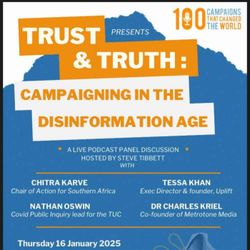
20. Live: Trust and Truth, Campaigning in the Disinformation Age
01:22:22||Season 2, Ep. 20An expert panel of seasoned campaigners who have dealt with disinformation and falsehoods, our first live panel event sheds light on how campaigners can navigate the issues and counter conspiracy theories, lies and half-truths. The panel consisted ofDr Charles Kriel, who is co-Founder of Metrotone Media, co-Director of the documentary People You May Know, which follows his breakthrough Cambridge Analytica investigation while serving as Special Advisor to the UK parliament Select Committee on Disinformation and Fake News.A list of other target panellists is available on request. Tessa Kahn, who is the Director of Uplift UK, which supports efforts to create a rapid and fair transition away from oil and gas production in the UK. Mythbusting and debunking the industry’s increasing tendency towards misinformation has become a stock-in-trade for Tessa and her team. Chitra Karve, who is Chair of Action for Southern Africa was an Anti-Apartheid Movement staff member from 1986 to 1989. She helped organise the 1988 Nelson Mandela: Freedom at 70 campaign.Nathan Oswin, who leads the Trade Union Congress's involvement in the Covid Public Inquiry and was previously Campaigns Director of the Covid-19 Bereaved Families for Justice campaign. Through these roles, he has dealt with large-scale and sometimes harmful types of disinformation and mistruths The event was sponsored by 38 Degrees and University of Westminster Media and Communications School and their MA in Media, Campaigning and Social Change https://www.westminster.ac.uk/media-and-communication-courses/2026-27/september/full-time/media-campaigning-and-social-change-ma. It was also supported by the Sheila McKechnie Foundation and the Advocacy Hub. Music is by Alex Gordon. Sound is by Derek Gray and Solomon Collins.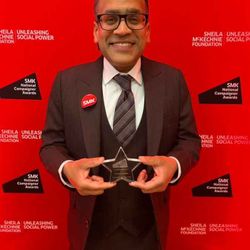
19. Kush Kanodia
38:26||Season 2, Ep. 19Dr. Kush Kanodia is a multi-award-winning campaigner on disability rights and is Sheila Mackechnie Foundation’s Campaigner of the year. His own disability has fuelled his lifelong commitment to social justice. He shifted from a successful investment banking career to focus on disability rights.In this episode, we discuss three successful disability rights campaigns which he has played a leading role in. One of these targeted the Premier League and the number of wheelchair-accessible spaces in stadiums which didn’t accurately reflect the needs of disabled fans, a second was on parking charges for disabled people at NHS hospitals and a third was on the London Ultra Low Emissions Zone. Sound is by Derek Gray and Solomon Collins.find him at https://kushkanodia.com/
18. Berlin Housing Campaign
38:07||Season 2, Ep. 18The Deutsche Wohnen & Co. Enteignen movement wants the city of Berlin to transfer real estate into public ownership, expropriating the city’s large corporate landlords: those who have more than 3,000 units (an estimated 11% of the city’s housing stock). Launched in 2018 but dating back to 2010, the initiative focused on increasing rents and poor-quality housing in a city where 85% of people live in rented accommodation.Campaigners uncovered a mechanism under the constitution to hold referenda. 7% of those eligible to vote were needed to sign a petition and some 171,000 signatures were collected. A referendum was held in 2021, with the campaign winning 59.1% of the vote, gaining over a million votes. Campaigners are now planning a new, binding referendum.One prominent activist within the movement is Polish-born Joanna Kusiak, who the guest in this episode. Joanna lives in Berlin and works at the University of Cambridge where her work focuses on urban land, housing crises, and the progressive potential of law. In 2021 she was one of the spokespeople of Deutsche Wohnen & Co. enteignen. Joanna describes both the campaign and some of the tactics and strategies it employed, with the legal-constitutional strategy at the heart of the effort. Sound is by Derek Gray and Solomon Collins.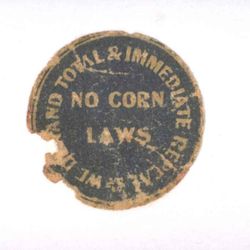
17. The Corn Laws
31:45||Season 2, Ep. 17The Corn Laws were a series of trade restrictions and tariffs on imported grain (wheat, oats, barley and rye – not corn) that were in effect in the UK from 1815 to 1846. The Passed by Prime Minister Lord Liverpool in response to a strained post-war economy, they were intended to favour domestic agriculture by making it more difficult to import grain. Campaigning on the laws focused on the Manchester-based Anti-Corn Law League. The goal of the League was the ‘immediate and total abolition’ of the Corn Laws, the wording deliberately echoing the successful anti-slavery agitations, but the broader aim was to promote global free trade. Free traders used abstract reasoning to argue that their policy was in the national interest. They also used masive public petitions. One further outcome of the campaign was the founding of The Economist magazine.Our guest in this episode is Dr Henry Miller, Vice Chancellor's Fellow, Northumbria University. He is an academic historian researching and teaching on modern Britain and is an expert on the Corn Laws and the Anti-Corn Law League. Henry offers some interesting and surprising observations and lessons for current campaigners from the League's operations nearly 200 years ago.Sound is by Derek Gray and Solomon Collins.Image courtesy of East Lothian Museums / Creative Commons.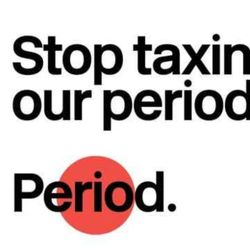
16. Stop taxing periods. Period.
28:40||Season 2, Ep. 16The guest on this episode is Laura Coryton, a British campaigner, feminist activist and author who started the "Stop taxing periods, period" campaign in 2014, while she was still a student. The campaign sought to abolish the 'tampon tax' in the United Kingdom by making menstrual products exempt from VAT. The campaign and petition on Change.org successfully pushed the UK Parliament into establishing the Tampon Tax Fund in 2016, through which almost £100m was donated to female-focused charities. Her campaign finally succeeded in 2021, when the tax on all period products was axed. Loads of great insights from a campaigner who started from scratch and changed something important through determination mixed with strategic direction.Sound is by Derek Gray and Solomon Collins.